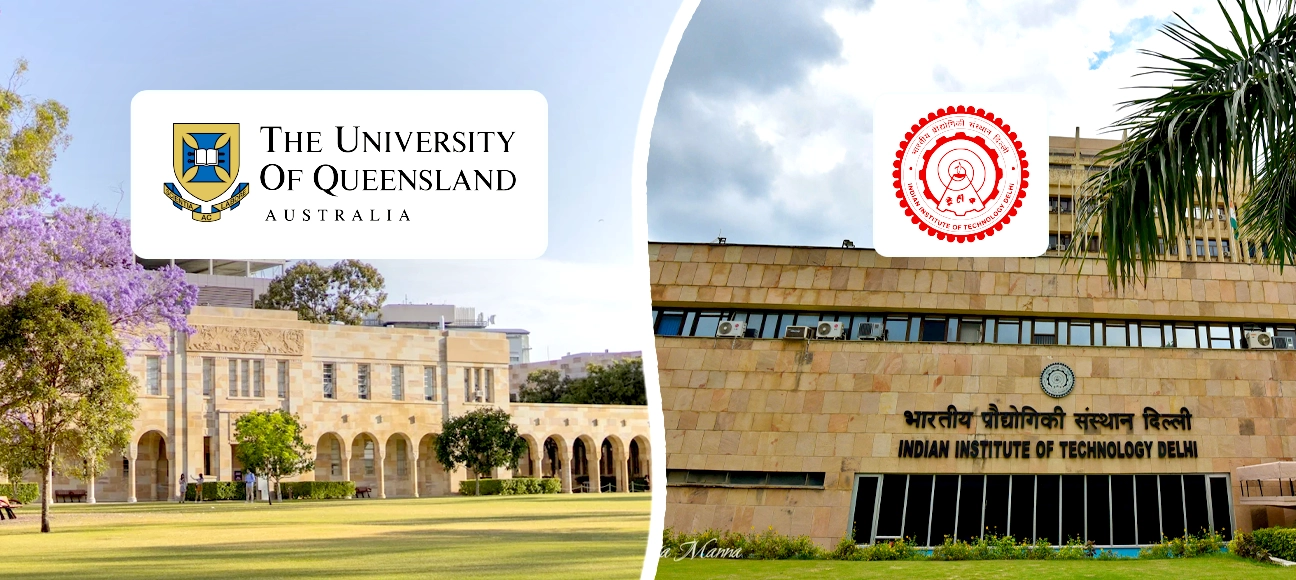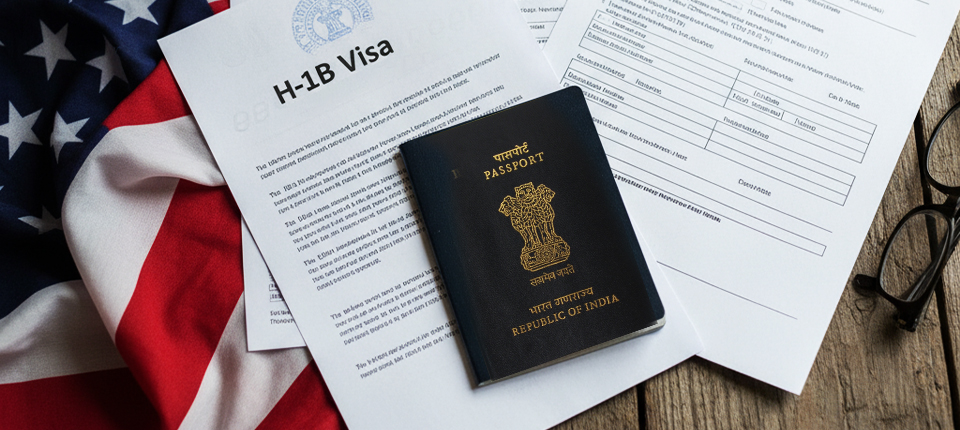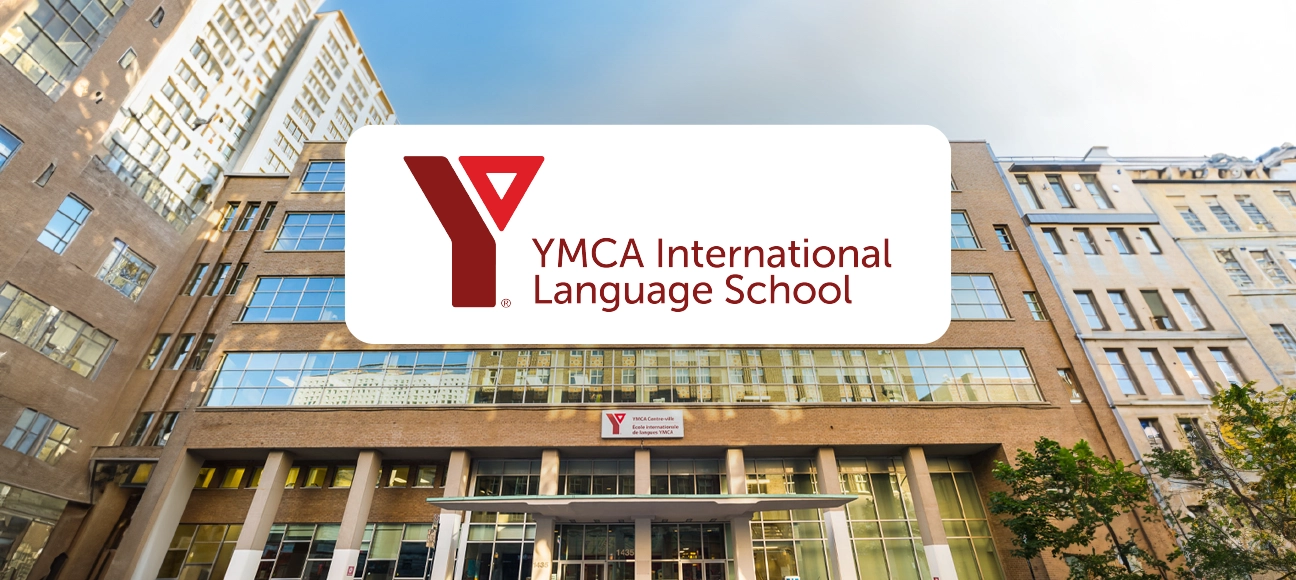Indian Student Loses Court Appeal After Canada Denies PGWP
 2 Min Read
2 Min Read
An Indian student has been denied a Post-Graduation Work Permit (PGWP) in Canada after both Immigration, Refugees and Citizenship Canada (IRCC) and a federal court ruled that the applicant failed to meet the eligibility criteria. The case highlights the importance of maintaining full-time student status throughout a study programme, a key condition for securing work rights after graduation.
The PGWP, a crucial pathway for international graduates to gain Canadian work experience, requires applicants to complete an eligible study programme at a designated learning institution. To qualify, students must maintain full-time enrolment during every semester of study, with part-time study allowed only in the final semester or during officially scheduled breaks.
In this case, the student in question pursued part-time study during the autumn semester, which was neither a recognised break nor their final term. IRCC ruled that this constituted a breach of the PGWP’s eligibility conditions. The student challenged the decision in court, but the judge upheld IRCC’s position, stating that the requirements were clearly outlined and that the burden of proof rests on applicants to show compliance.
According to IRCC guidelines, international students applying for a PGWP must demonstrate that they:
- Completed a programme of at least eight months at a PGWP-eligible institution.
- Maintained full-time study throughout, except in the final semester.
- Applied within 180 days of completing their programme.
- Held a valid study permit during or after their studies.
The ruling serves as a cautionary reminder to international students in Canada, particularly the growing number of Indian nationals who now make up the largest share of Canada’s foreign student population. Any deviation from full-time enrolment outside permitted circumstances could jeopardise future work opportunities.
Students denied a PGWP may still be eligible for alternative work permits, such as an employer-specific permit or an open work permit, though these carry additional conditions.
The case underscores the strict interpretation of Canada’s work permit regulations and signals that courts are unlikely to overturn IRCC’s decisions unless applicants can show clear compliance with the rules.
Source: FINANCIAL EXPRESS
Top Stories

ICEF Launches AI-Powered Compliance Platform to Monitor Education Agents
September 8, 2025 | By Daniel
UK Remains Top Choice for Pathway Students Despite Tougher Visa Rules
September 5, 2025 | By Jace
China’s New K Visa Targets Global STEM Talent Amid AI Race
September 4, 2025 | By KaiMore Articles

CBSE Draft Curriculum Proposes Widespread Integration of Computational Thinking and AI
The Central Board of Secondary Education (CBSE) has prepared a progressive draft curriculum aimed at…
By Jace

Malta Sees 27% Surge in International Higher Education Students
Malta is emerging as a significant player in the global education market, with new statistics confirming a dramatic surge in…
By Daniel

Trump Defends Foreign Students, Citing Economic Impact on US Colleges
President Donald Trump recently defended the presence of international students in U.S. universities, pushing…
By Aahana

Germany Emerging as the Next Hotspot for Indian Medical Aspirants
With low to no tuition fees, EU recognition, and rising doctor demands in Germany, the nation is…
By Kai

US Revokes 8,000 Student Visas in Broad Immigration Crackdown
The Trump administration has confirmed the revocation of more than 8,000 US student visas since…
By Ezra

New ‘Student-centred’ Award to Redefine UK-India Education Agent Recognition
The prestigious India-UK Achievers Honours, a flagship initiative of the National Indian Students & Alumni Union…
By Neerav

Australia Introduces New Student Visa Rule: Processing Times Now Linked to University Compliance
The Australian government has announced a significant policy shift in its management of the international education…
By Henry

New Zealand Expands Student Visa Working Hours in Recent Policy Change
Breaking! New Zealand expands its student visa working hours, allowing students to work 25 hours…
By Jace

Study and Work Abroad Becomes Tougher Due to Strict Rules
The study and work abroad dynamics are shifting in the opposite direction. While every student planning to…
By Ezra

Study in Portugal- An Affordable Option for International Students
In recent times, Portugal is slowly becoming the new favourite study abroad destination amongst Indian students due to…
By Vaidant

Top 5 Future-ready Courses to Study Abroad
The realm of education is changing rapidly around the world. There has been a clear shift from in students’ perspective about…
By Henry

MBBS Abroad Trends Shift from Ukraine to Georgia for Indian Students
Georgia emerges as the new favourite study abroad destination for medical students over taking Ukraine…
By Advay

South Korea Surpasses 300,000 International Enrolments Nearly Two Years Early
South Korea has achieved a major milestone by surpassing 300,000 international student…
By Ezra

Universities Warn: “We Can’t Leave Education to Political Leaders”
Universities across the world are urging greater unity as international education becomes increasingly…
By Jace

CAS Issuances Rise 8% as UK Universities See First Major Recruitment Rebound in Two Years
International student recruitment is showing clear signs of revival in the United Kingdom, with…
By Daniel

US Considers Ending OPT Tax Exemption for International Students
The US is once again placing its post-study work routes under scrutiny as new legislation proposes ending long-standing tax…
By Henry

UK and Vietnam Strengthen Education Ties Through New Strategic Partnership
The UK and Vietnam have elevated their bilateral relationship to a comprehensive strategic…
By Kai

Australian MPs Defend Education Integrity Reforms as New Bill Advances
Australia is moving closer to implementing major reforms to strengthen the integrity of its international education…
By Siya

University of East London and NISAU partner to boost Indian student success in the UK
The University of East London (UEL) has announced a new partnership with the National Indian Students…
By Ezra

University of Queensland and IIT Delhi Open Applications for Joint PhD Programme 2026
The University of Queensland (UQ), Australia, and the Indian Institute of Technology Delhi (IIT Delhi) have…
By Henry

Macquarie University Launches ₹28.5 Lakh Scholarship Programme for Indian Students
Macquarie University in Australia has unveiled a new scholarship programme worth approximately ₹28.5 lakh to support…
By Daniel

Monash University to Open New Malaysia Campus by 2032
Monash University has announced a major expansion in Malaysia, confirming plans to open a second state-of-the-art campus…
By Jace

Global MBA Demand Shifts to Asia as Interest Declines in Western Countries
Global demand for MBA and business master’s programmes is shifting decisively towards Asia, even as…
By Kai

Japan Eyes Indian Talent to Tackle Ageing Workforce, But Cultural Gap Persists
Japan is turning to India to bridge its growing labour shortage as the country grapples with…
By Neerav

Sri Lanka to Host First-Ever UK University Campus as UWL Expands Global Footprint
Sri Lanka is set to welcome its first-ever UK university campus, with the University of West London (UWL) announcing…
By Ezra

Canada’s Study Permits Drop 60% Amid Immigration Policy Overhaul
Canada has recorded a dramatic 60% decline in international student arrivals during the first half of 2025, marking one…
By Siya

Policy Uncertainty Emerges as Major Barrier to Global Student Mobility
A new global survey by IDP Education has revealed that sudden and unclear policy changes are…
By Advay

US Clarifies $100,000 H-1B Visa Fee Rules: Relief for Existing Workers
The United States has issued fresh clarification on the controversial $100,000 H-1B visa fee, easing confusion…
By Kai

UK Cracks Down on Recruitment and Low-Quality Courses Under New Education Reforms
The United Kingdom is tightening its post-secondary education and skills training framework with…
By Aahana

India’s Study Abroad Remittances Hit Eight-Year Low Amid Global Uncertainty
Study abroad remittances from India have plunged to their lowest level in eight years, according to new data from the…
By Vaidant

Canada’s ‘Edugration’ Model Faces Growing Scrutiny Amid Calls for Reform
Canada’s long-standing “edugration” model; the fusion of education and immigration policy has come under sharp scrutiny as…
By Siya

Universities Urge Swift UK Return to Erasmus Scheme
Universities across the United Kingdom and Europe are urging the government to finalise a deal for the UK’s swift…
By Ezra

Europe’s New Digital Border System: What Indian Travellers Need to Know
Europe is introducing a major digital upgrade to its border control process. Starting 12 October 2025, the…
By Daniel

Record Indian Student Enrolment at USC Despite H-1B Concerns, Says Dean
Despite ongoing visa challenges and new H-1B fees under the Donald Trump administration, the…
By Aahana

South Korea Introduces K-STAR Visa to Attract Global STEM Talent
South Korea has unveiled a new visa pathway designed to attract top global talent in…
By Kai

MIT Rejects Trump’s Preferential Funding Offer, Citing Academic Freedom
The Massachusetts Institute of Technology (MIT) has become the first American university to reject Donald Trump’s proposed…
By Advay

Wales Rejects UK International Student Levy, Reaffirms Commitment to Global Students
Wales has confirmed it will not adopt the UK government’s controversial international student levy, signalling a…
By Vaidant

Lancaster University Expands to India with New Bengaluru Campus
Lancaster University has announced plans to establish a new campus in Bengaluru, India, joining a…
By Henry

International Student Arrivals to the US Drop 19%, India Sees Sharpest Decline
International student arrivals to the United States fell by 19% this August, marking the steepest annual drop…
By Siya

Academic Freedom Shrinks in the US and India, New Report Warns
Academic freedom in the United States and India is facing an alarming decline, according to the Free to Think 2025…
By Vaidant

Starmer Rules Out Visa Changes, Highlights UK University Opportunities in India
UK Prime Minister Keir Starmer has ruled out introducing new visa routes for Indian students and…
By Kai

France Launches Lafayette Fellowship to Attract American Students
France has announced the launch of the Lafayette Fellowship, an exclusive new programme designed to attract top…
By Ezra

Montreal’s Historic YMCA International Language School to Close Amid Policy Turmoil
The YMCA International Language School in Montreal, a fixture in Canada’s language education sector for…
By Daniel

Lawsuit Challenges Trump’s $100,000 H-1B Visa Fee Hike
A coalition of US labour unions, universities, healthcare providers and visa holders has launched the first…
By Advay

US Senator Demands End to OPT Amid Jobs and Espionage Concerns
A senior United States senator has urged the government to halt work authorisations for…
By Jace

Trump’s 15% Cap on International Students Sparks Alarm in US Universities
The United States is bracing for a major shift in higher education as the Donald Trump administration…
By Advay

Lithuania Moves to Tighten Rules on International Students
Lithuania is preparing new restrictions on international students following concerns that some have been…
By Aahana

UCL Granted Extra CAS Numbers After Allocation Exceeded
University College London (UCL) has been granted additional Confirmation of Acceptance for Studies (CAS) allocations…
By Henry

Canada’s PGWP Decline Threatens Workforce Amid Global Talent Shifts
Canada’s labour market is bracing for intensified shortages as post-graduation work permit (PGWP) approvals are…
By Kai

Phased Rollout of New UK BCA Thresholds Confirmed Amid Immigration Crackdown
UK universities have been told to prepare for a “phased implementation” of new Basic Compliance Assessment (BCA)…
By Neerav

UK Overtakes US as Top Destination for Business Education
The United States has lost its long-held crown as the leading destination for business education, with the United Kingdom…
By Henry

Global Demand for US Master’s Degrees Falls by 60% Amid Policy Uncertainty
International student demand for US master’s degrees has plummeted by 61% in 2025, raising concerns about the…
By Vaidant

US Proposes 15% Cap on International Student Enrolments
The United States government has proposed a sweeping new compact that could dramatically reshape international student…
By Aahana

Canada ‘No Longer Competitive’ in Global Talent Race, Warns CBIE
Canada is losing its competitive edge in attracting international students due to a string of federal…
By Daniel

Trump Proposes H-1B Visa Overhaul Favouring Higher Paid Workers
The United States is set for a major shake-up of its H-1B visa programme, with the Trump administration proposing a new…
By Ezra

Report Warns UK International Fee Levy Could Slash Student Enrolments by 77,000
The United Kingdom’s higher education sector could face a severe blow if the government proceeds with plans to…
By Advay

UKVI Reportedly Stops International Students at Airports for Extra Checks
International students travelling to the United Kingdom are reportedly being stopped by UK Visas and Immigration (UKVI) officials…
By Henry

US College Leaders Express Growing Concern Over Trump Administration
Nearly three-quarters of US college leaders have expressed extreme concern over the Trump…
By Ezra

Australia Faces Decline in Student Commencements but 2025 Target Remains Within Reach
Australia’s international education sector has recorded a notable fall in new student…
By Siya

Austria Strengthens Education Ties with India Through STEM Initiatives
Austria has announced a major expansion of its higher education collaboration with India, launching new STEM-focused…
By Ezra

France Strengthens Position as International Student Hub Amid US Decline
France has cemented its position as a leading study destination, hosting nearly 445,000…
By Daniel

Uncertainty Surrounds New $100,000 H-1B Visa Fee in US
Confusion continues to swirl around the United States’ decision to impose a new…
By Neerav

Irish ELT Sector Holds Firm Despite Adult Enrolment Decline
Ireland’s English Language Teaching (ELT) sector welcomed more than 60,000 international students…
By Vaidant

Coventry University Project Wins Study Abroad and Exchange Award
Coventry University’s innovative Telepresence in Theatre project has been named…
By Aahana

Indian Students Reassess Study Abroad Plans After US H-1B Visa Fee Shock
A sudden hike in H-1B visa fees in the United States has unsettled thousands of Indian students and professionals…
By Jace

Scotland Appoints Ben Macpherson as New Higher Education Minister
Scotland has appointed Ben Macpherson, MSP for Edinburgh Northern and Leith, as its new minister for higher…
By Kai

International Students Maintain US Study Plans Despite Concerns, Survey Shows
Despite rising concerns over safety, stability, and visa hurdles, a new survey suggests that most international…
By Ezra

IIE Launches Five-Year Survey on International Higher Education Partnerships
The Institute of International Education (IIE) has launched a five-year global survey examining the landscape of…
By Daniel

Germany to Offer Free Student Visas for Indian Short-Term Programmes
Germany has announced a major step to support international education by introducing gratis visas, visas issued free of…
By Kai

United States tops global student satisfaction survey
The United States has retained its position as the world’s leading destination for international student…
By Jace

Saudi Arabia and Australia deepen cooperation in education and research
Saudi Arabia and Australia are forging closer ties in higher education, scientific research, and skills development following…
By Henry

Indian study-abroad sector welcomes GST relief after Supreme Court ruling
India’s study-abroad consultancy sector has expressed relief and optimism following a Supreme Court decision and a subsequent…
By Siya

US visa policy shift raises equity concerns for international students
New guidance from the United States Department of State is sparking widespread concern across the global…
By Aahana

Scotland steps up efforts to retain international students post-graduation
Scotland is intensifying its internationalisation drive, with higher and further education minister Graeme Dey declaring…
By Vaidant

US Institutions Dominate Global MBA Rankings 2026
The United States has reaffirmed its dominance in postgraduate business education, taking…
By Henry

European Universities Urged to Avoid Recruitment Pitfalls of ‘Big Four’
European universities have been warned to avoid the recruitment mistakes made by major study…
By Daniel

Australia Sees Fall in Student Visa Lodgements Amid Integrity Crackdown
Australia’s student visa system is undergoing significant change as application numbers…
By Kai

Hungary Offers Tuition-Free Higher Education with Monthly Stipend
Hungary has announced an attractive opportunity for international students through its flagship Stipendium…
By Neerav

Independent English Language Benchmarking Body ELSA Launches
A new non-profit organisation, the English Language Standard Authority (ELSA), has officially launched with the aim…
By Ezra

Germany Waives Visa Fees for Indian Students in Landmark Move
Germany has announced that Indian students will no longer be required to pay visa fees for short-term academic…
By Advay

Canada Opens PR Pathway for International Education Students
Canada has announced a new immigration pathway that allows international students in education to transition…
By Siya

London Met Tops UK Rankings for Student Value Added
London Metropolitan University has been named the best in the UK for the progress its students make, according…
By Aahana

China Approves 46 New TNE Partnerships in Major Higher Education Expansion
China’s Ministry of Education has approved 46 new transnational education (TNE) partnerships as the country looks…
By Ezra

English Path Expands with New Campus in Riyadh, Saudi Arabia
English Path (EP), a global leader in language training, has announced the opening of a new campus in Riyadh, strengthening…
By Daniel

Global ELT Recovery Stalls as Canada, UK and Australia Face Setbacks
The global English Language Teaching (ELT) sector is facing slower-than-expected recovery, with major study…
By Jace

West Africa Emerges as Growing Study Destination for International Students
West Africa is seeing a surge in international student interest as affordability and visa accessibility drive demand…
By Advay

Australia’s New Tertiary Education Commission to Steer Long-Term Reform
Australia has launched the Australian Tertiary Education Commission (ATEC), a new independent body tasked with driving…
By Neerav

Canada Rejects 80% of Indian Student Visas in 2025 as Germany Gains Ground
Canada has rejected nearly 80% of student visa applications from India this year, marking one…
By Vaidant

Universities of Greenwich and Kent to Merge into ‘Super-University’
Two prominent UK universities, the University of Greenwich and the University of Kent, have announced a merger…
By Kai

UK International Student Numbers Double Over Past Decade
The number of international students in the United Kingdom has more than doubled over the past decade, reinforcing…
By Siya

US Visa Applicants Must Now Interview in Home Country
The US State Department has announced that, effective 6 September 2025, all nonimmigrant visa applicants, including…
By Ezra

Harvard Secures Court Victory Against Trump Administration
Harvard University has won a major legal battle against the Trump administration, with a federal court ruling that the…
By Vaidant

Malvern College to Open New Campus in Saudi Arabia by 2027
UK independent school Malvern College has announced plans to open its first Saudi campus in Riyadh, marking a…
By Jace

Home Office Moves Towards ‘Digital by Default’ English Language Testing
The UK Home Office has taken a major step towards introducing a digital-first approach to English language testing, as part of its…
By Aahana

Indian Students Face Stricter Visa Rules as US Tightens Policies
Indian students planning to study in the United States are facing tougher challenges after the US government enforced stricter…
By Aahana

USC Launches New Undergraduate Degree in Artificial Intelligence
The University of Southern California (USC) has announced the launch of a new undergraduate programme in Artificial Intelligence, marking a…
By Henry

ICEF Launches AI-Powered Compliance Platform to Monitor Education Agents
ICEF, a leading accreditation and training organisation in the international education sector, has unveiled an…
By Daniel

TOEFL Launches ₹10 Lakh Initiative for Indian Study Abroad Aspirants
Indian students planning to study overseas have been given a fresh boost through a new initiative by ETS, the organisation behind…
By Advay

Germany Surpasses US and Canada as Top Study Destination for Indian Students
Germany has overtaken the United States and Canada as the leading choice for Indian students seeking higher education…
By Henry

UK Remains Top Choice for Pathway Students Despite Tougher Visa Rules
The United Kingdom continues to hold its position as the leading destination for…
By Jace